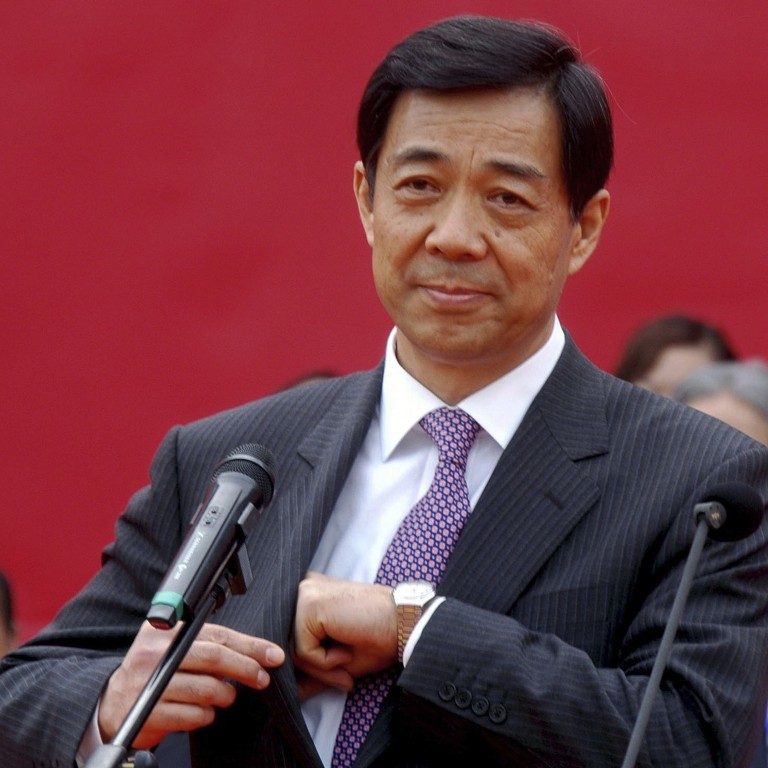
Verdict in Bo Xilai case to be delivered on Sunday
Jinan Intermediate People’s Court expected to issue guilty verdict in high-profile case
A court in Jinan has announced it will deliver a verdict on Sunday against disgraced politician Bo Xilai on charges of bribery, embezzlement and abuse of power in a case set in motion by his wife’s murder of a British businessman.
The former Politburo member and Chongqing city party leader vigorously defended himself during his trial last month in the eastern city, acknowledging mistakes in his leadership but admitting no guilt in the charges laid against him.
Prosecutors accused him of interfering with the investigation into his wife’s murder of Briton Neil Heywood in November 2011, as well as other examples of corruption uncovered by investigators. However, the case against him also was widely perceived as a result of his downfall in factional infighting ahead of China’s leadership transition last autumn.
The Jinan Intermediate People’s Court said on Wednesday on its Sina Weibo account the verdict will be announced at 10am on Sunday.
In a sign of the event’s importance and sensitivity, a hotel near the court that served as the venue for news conferences during Bo’s trial is taking reservations from accredited journalists only until Monday in an apparent effort to keep away members of the public, among whom Bo continues to command considerable support.
Security was tight during the five-day trial but, in a rare display of openness, the court regularly released chunks of the transcript, revealing a surprising amount of detail for such a major political trial. Legal analysts said the transparency was less a sign of legal reform than a desire by China’s leadership to lend credibility to a process believed to have a foregone conclusion.
“The verdict may appear to be come from the court, but it is from the highest leadership,” said Han Deqiang, an economist at the Beijing University of Aeronautics and Astronautics and a staunch supporter of Bo. “If we simply go by the law of innocence until proven, he is clearly not guilty, but the prosecution presumed his guilt and there are other factors such as politics,” Han said.
Bo, who was removed from office in March and expelled from the Communist Party in September, is the highest-ranking official to stand trial in the mainland since former Shanghai party chief Chen Liangyu in 2008. Convicted of financial fraud, abuse of power and accepting bribery, Chen was sentenced to 18 years in prison. Chen did not appeal the court decision.
The corruption charges against Bo carry a possible penalty of death, but many observers believe he will not receive the maximum sentence.
Li Zhuang, a Beijing-lawyer who was jailed in Chongqing under Bo’s rule and who has been closely following the case, said Bo would be sentenced to at least 20 years in jail given the charges against him. Bo’s spirited defence in the trial indicates he is likely to try to launch an appeal against any guilty verdict, Li said.
Prosecutors accused Bo of netting US$4.3 million through embezzlement facilitated by his wife, Gu Kailai, and through bribes given to his family by a businessman, including a French villa, expenses-paid vacations and fancy delicacies such as the prized shellfish abalone. He also was accused of interfering in the investigation into Gu, who was convicted of murdering Heywood in a separate trial last year.
During court testimony, Bo denounced the prosecution’s key witnesses – including his wife and his former police chief and right-hand man Wang Lijun. Bo said his wife was crazy and Wang was dishonest, while portraying himself as a well-intentioned official too busy to closely scrutinize the people in his inner circle. Gu testified Bo knew about the bribes, because she told him about them.
Prosecutors said Bo’s crimes were “extremely grave” and urged the court to hand out a severe punishment, given that Bo refused to admit guilt.
“It was very clear that the prosecutors said there was no ground for leniency,” Li said.
Li Xiaolin, another prominent Beijing lawyer, said Bo is likely to be sentenced to 15 years and that he may not bother with an appeal.
“What’s the use of appealing? It would be futile,” Li said. “But he may issue some statement.”
The scandal began to unfold in February last year when Wang – after having a fallout with Bo – fled to the US consulate in Chengdu with information about the Heywood murder and, in a severe breach of Communist Party rules, unsuccessfully sought political refuge there.
Heywood’s death initially had been attributed by investigators to excessive drinking, and Britain later demanded a renewed enquiry, sparking an international diplomatic incident for the leadership in Beijing.
